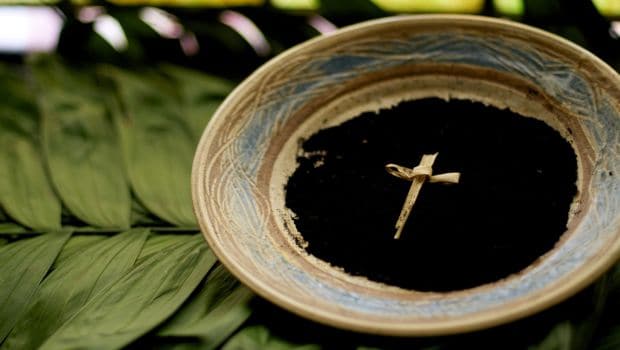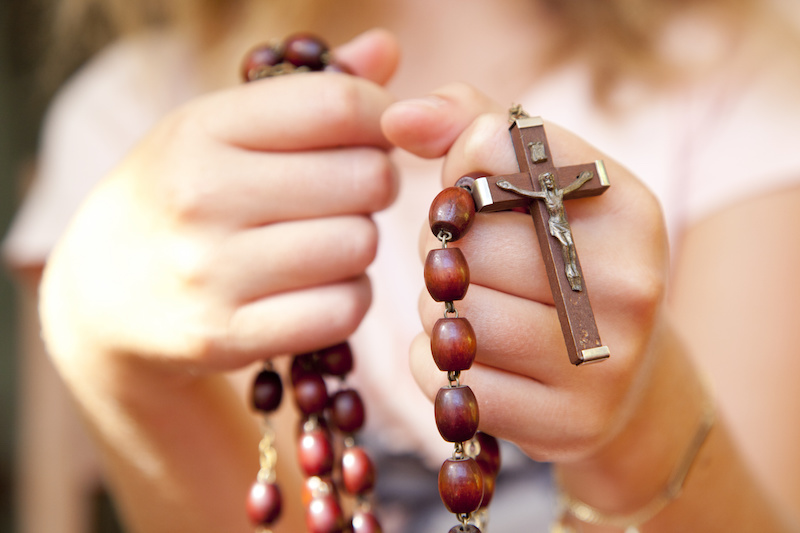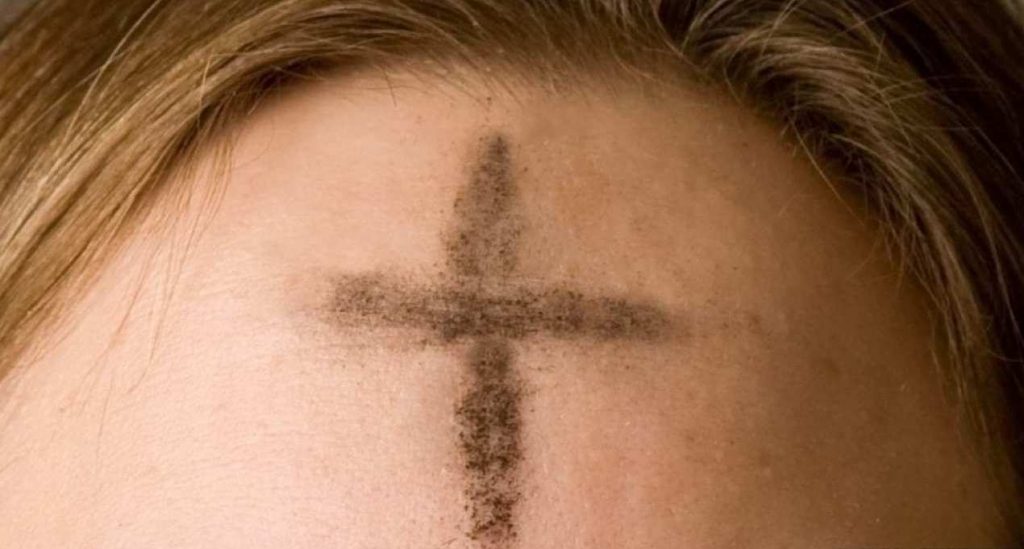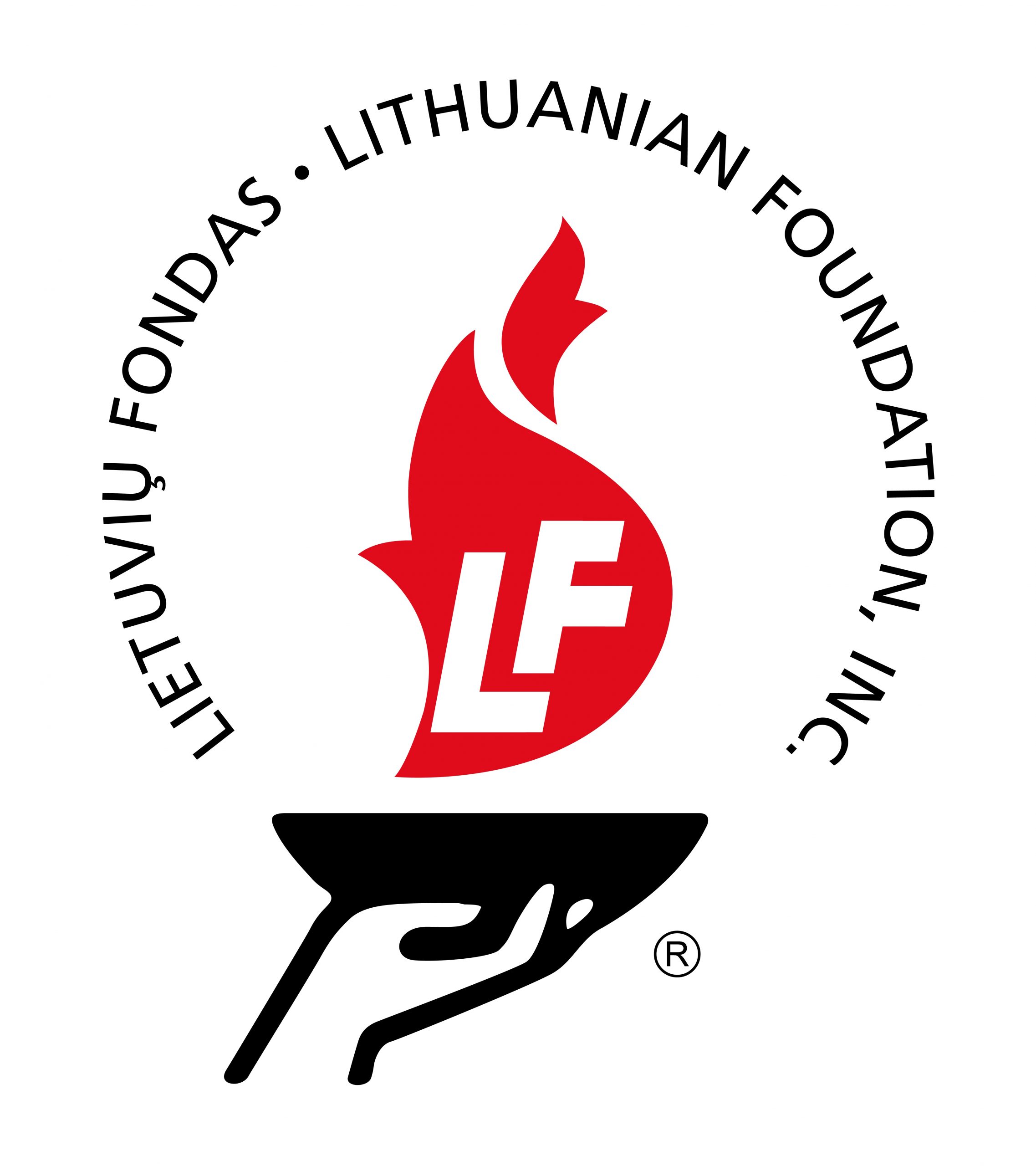The meaning and celebration of Ash Wednesday
(EN) After Advent and Christmas, Lent is the third season of the Catholic Church’s liturgical year which begins with Ash Wednesday (Pelenų trečiadienis) a six week period of penance before Easter. This year, it falls on February 17. It marks the first day of Lent, when every Christian is asked to begin a time of reflection and penitence. In the Old Testament, Job repented for his sins in dust and ashes. (Job 42:5-6). On this day, people flock churches to have ashes imposed on their foreheads in a form of the cross, with the priest saying: “Remember, man that thou art dust and unto dust thou shalt return. (Genesis 3:19). The Lord God formed a man from the dust of the ground and breathed into his nostrils the breath of life, and man became a living being.” (Gen. 2:7). The ashes signify our mortality, inner fragility and poverty, while the cross indicates our salvation in the mercy of God. We are redeemed by Christ with his crucifixion on Good Friday.

During these 40 days of Lent we join Jesus in sacrifice and withdrawal into the dessert. We practice fasting and abstinence on Ash Wednesday, Fridays of Lent and Good Friday. The law of abstinence requires those 14 years of age and above, abstaining from eating meat. Meat is considered to be flesh and organs of mammals and fowl including soups or gravies made from them. Salt and freshwater species of fish, amphibians, reptiles and shellfish are permitted, as are animal-derived products such as gelatin, butter, cheese and eggs, which do not have any meat taste.
(LT) Per šias 40 gavėnios dienų mes, kartu su Jėzumi, aukojame ir pasitraukiame į “dykumą”. Mes pasninką ir susilaikymą praktikuojame Pelenų trečiadienį, Gavėnios penktadieniais ir Didįjį penktadienį. Abstinencijos įstatymas reikalauja, kad 14 metų ir vyresni susilaikytų nuo mėsos valgymo. Mėsa laikoma: žinduolių ir paukščių mėsa ir organai, įskaitant iš jų pagamintas sriubas ar padažus. Druskingų ir gėlųjų vandenų žuvys, varliagyviai, ropliai ir vėžiagyviai, taip pat gyvūninės kilmės produktai, tokie kaip želatina, sviestas, sūris ir kiaušiniai, nepriskiriami prie draudžiamų patiekalų.
(EN) The law of fasting requires those from their 18th birthday to the 59th birthday to reduce the amount of food eaten from normal. The Church defines this as one meal a day, and two smaller meals which if added together would not exceed the main meal in quantity. The fast is broken by eating between meals and by drinks which could be considered food (milk shakes, but not milk). Alcoholic beverages do not break the fast; however, they seem contrary to the spirit of doing penance
(LT) Pasninko reikalauja, kad nuo savo 18-ojo iki 59-ojo gimtadienio žmogus turėtų sumažinti suvalgyto maisto kiekį. Bažnyčia tai apibrėžia kaip vienas valgis per dieną ir du mažesnius patiekalus, kuriuos sudėjus neviršytų pagrindinio valgio kiekio. Pasninkas nutrūksta valgant tarp valgių, ir gėrimais, kurie gali būti laikomi maistu (pieno kokteiliai, bet ne pienas). Alkoholiniai gėrimai nenutraukia pasninko; tačiau atrodo, kad jie prieštarauja atgailos dvasiai.
(EN) Parents are to see to it that their minor children are educated and encouraged to perform acts of prayer, penance and personal sacrifices. With the family staying home these days, it is good to engage in reciting the rosary. You can also pray the Divine Mercy Chaplet or attend live stream Mass from Vilnius on the internet website Dievo Gailestingumo Šventovė. The Divine Mercy Chaplet is a beautiful prayer for God’s mercy and forgiveness during this season of Lent. The family that prays together stays together.

(LT) Tėvai rūpinasi, kad jų nepilnamečiai vaikai būtų mokomi ir skatinami atlikti maldas, atgailas ir asmenines aukas. Kai šeimos šiomis dienomis daugiau laiko praleidžia namuose, galima užsiimti rožinio deklamavimu. Taip pat galite melstis Dieviškojo gailestingumo maldelę arba dalyvauti tiesiogiai iš “Dievo Gailestingumo šventovės” Vilniuje transliuojamoseŠv. Mišiose. Šeima, kuri meldžiasi kartu, būna kartu
(EN) The following may be excused; those outside the age limits, those of unsound mind, the sick, the frail, pregnant or nursing women according to need for meat or nourishment, manual laborers according to need and guests at a meal who cannot excuse themselves without giving great offense or causing enmity. However, they are encouraged to perform acts of prayer and do charitable works at an appropriate time during Lent.
(LT) Kas yra atleidžiami nuo pasninko: asmenys už šių amžiaus ribų (18 – 59), protine negalia sergantieji asmenys, ligoniai, nėščios ar maitinančios moterys, atsižvelgiant į mėsos ar maisto poreikį, sunkiai fiziškai dirbantys darbuotojai ir svečiai valgio metu, kurie gali įsižeisti arba sukelti priešiškumą. Tačiau jie raginami kartu atlikti maldas ir labdaros darbus gavėnios metu.
(EN) There will be a special outdoor Mass for Ash Wednesday on February 17 to be followed with the distribution of ashes. Please call the parish office to register. Health and city protocols will apply.

(EN) There is so much fear going around these days. Let us continue to be strong with our prayers and God will not abandon us. We invite everyone to participating in communal liturgy and resuming attendance whenever possible. During this season of Lent let us be sorry for our shortcomings, amend our lives, make our hearts pure, practice self control and grow in holiness as we prepare for Easter and share in the resurrection of Christ.
(LT) Būkime tvirti maldomis ir Dievas mūsų neapleis. Šiuo gavėnios sezonu gailėkimės dėl trūkumų, pataisykime savo gyvenimą, sutvarkykime širdį, praktikuokime savitvardą ir aukime šventumu, kai ruošiamės Velykoms ir dalyvaujame Kristaus prisikėlime.
Rėmėjai

